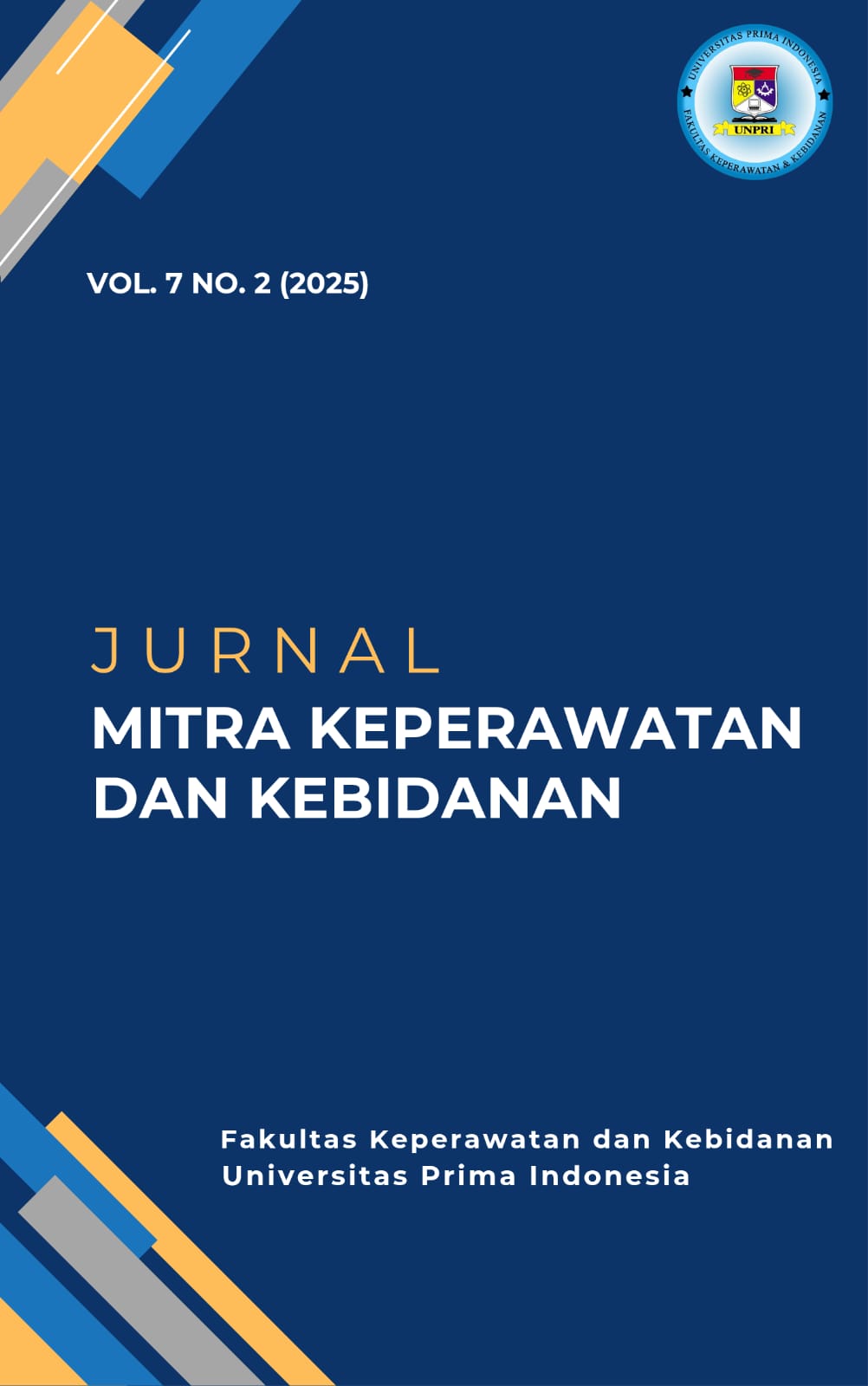Gambaran Kualitas Hidup Pasien Gagal Ginjal Kronis yang menjalani Hemodialisa di RSU Royal Prima Medan
##plugins.themes.academic_pro.article.main##
Abstract
Chronic Kidney Disease (CKD) is a long-term condition characterized by a gradual decline in kidney function due to various underlying causes, which can ultimately progress to end-stage renal disease requiring lifelong renal replacement therapy such as hemodialysis or kidney transplantation. CKD not only affects physical health but also significantly impacts psychological well-being, social relationships, and overall quality of life. This study aimed to describe the quality of life among CKD patients undergoing hemodialysis at Royal Prima Medan Hospital. A quantitative descriptive design with a cross-sectional approach was employed, involving 66 respondents selected through purposive sampling. Data were collected using the WHOQOL-BREF questionnaire and analyzed descriptively. The findings showed that the majority of patients (53%) had a moderate quality of life, while 24.2% reported good quality of life and 22.8% reported poor quality of life. These results suggest that although hemodialysis is a lifelong therapy, many patients are able to adapt and maintain a sufficient level of well-being. Continuous medical care, health education, and psychosocial support are recommended to enhance patients’ quality of life and promote better health outcomes in this population.

